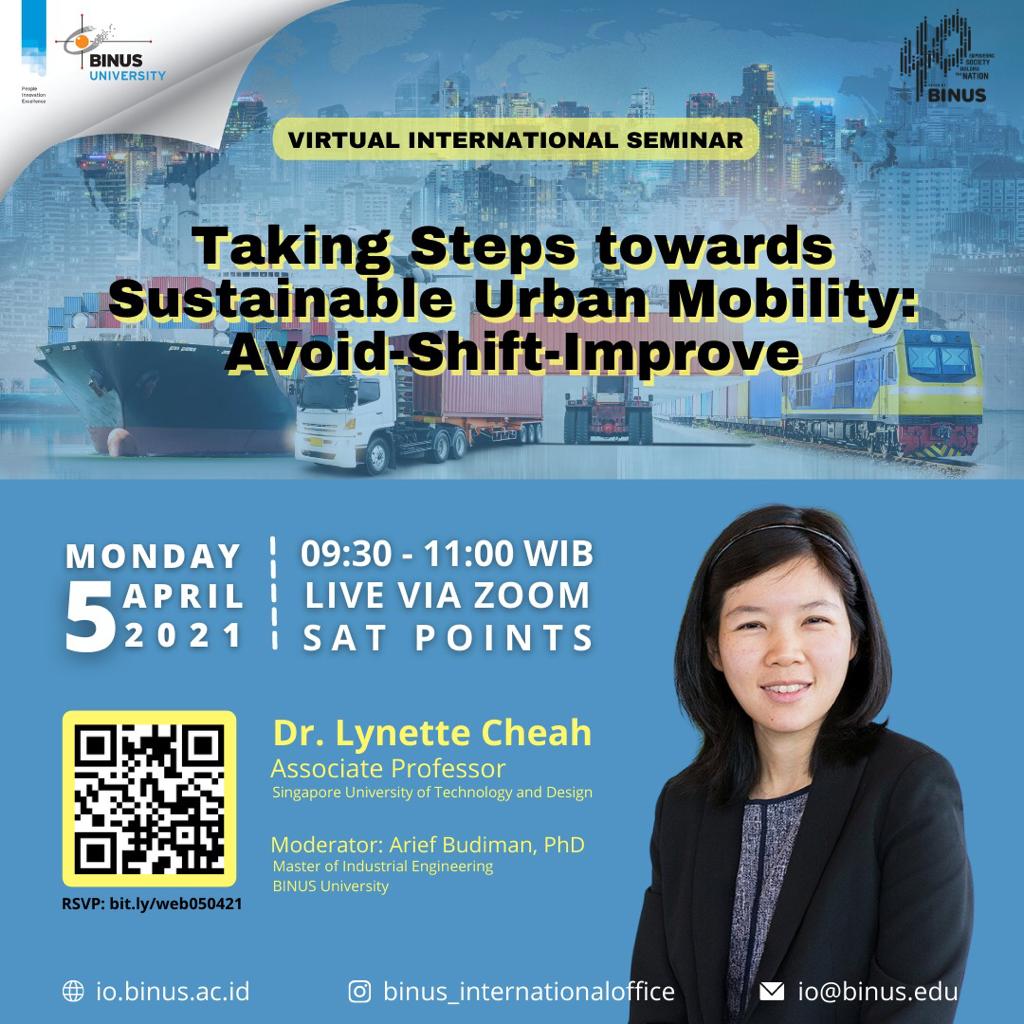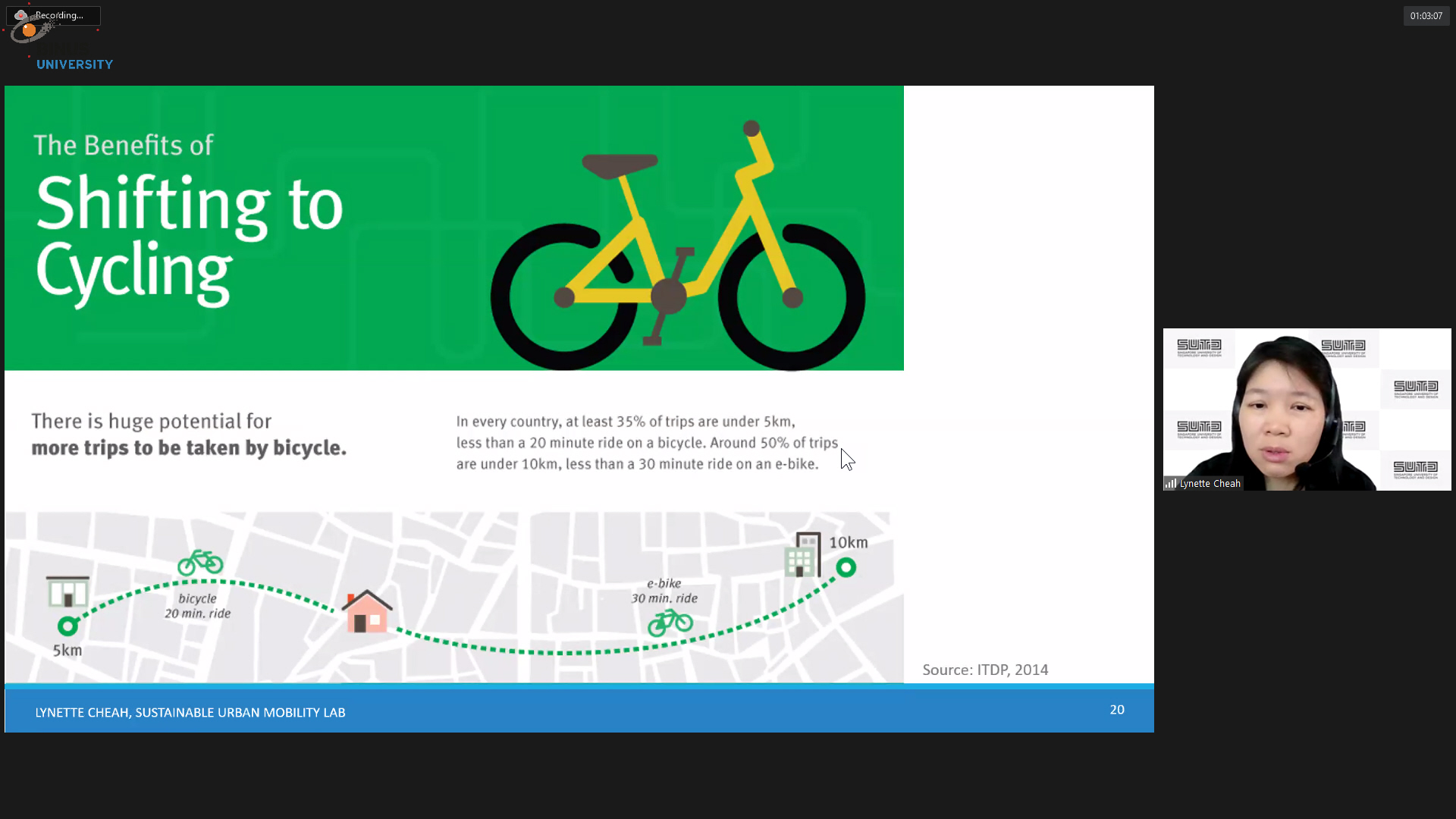International Seminar: Taking Steps towards Sustainable Urban Mobility: Avoid-Shift-Improve

BINUS UNIVERSITY held a virtual international seminar with Dr. Lynette Cheah, Associate Professor from Singapore University of Technology & Design on Monday, April 5, 2021. Titled “Taking Steps towards Sustainable Urban Mobility: Avoid-Shift-Improve”, the seminar addressed one of the problems that occur in most big cities: transportation and its environmental impact.
The moderator for this seminar was Arief Budiman, Ph.D., Master of Industrial Engineering from BINUS University. He started by introducing Dr. Cheah as the guest speaker for the seminar. Dr. Cheah leads the sustainable urban mobility group in SUTD, which developed a data-driven model and tools to reduce the environmental impacts of passenger and urban freight transport. Her expertise is in transport modeling and simulation, 5-cycle energy, and environmental assessment of products & systems.
Budiman then emphasized that the seminar will have a lot of implications, not only for industrial engineering but also for most of society.
Dr. Cheah started off her presentation by asking a simple question to the participants about how many vehicles there are in the world today. Turned out, as of 2015 there were 1,280 billion vehicles, which is predicted that by 2050 the number will grow to 2+ billion, and three times more freight activity.
She then stated that with that growth comes issues and challenges, with the first one being climate change, as transport makes up 23% of global anthropogenic emissions. The next problems mentioned were congestion in cities, as well as the disposal of old cars.
However, transportation still must continue. The more economic activity, travel demand will grow, therefore there will be a greater environmental impact. Dr. Cheah then proposed that the goal is to continue more sustainably.

To achieve sustainable urban mobility, Dr. Cheah mentioned that three things should be considered: environment, economy, and society. She then proposed three approaches: avoid-shift-improve to be considered. The first one is to avoid or reduce the need to travel, including designing more people-friendly cities. The next one is to shift or maintain share of more environmentally friendly modes, for example by shifting to cycling. The last one is to improve the energy efficiency of transport modes and vehicle technology. Dr, Cheah also highlighted the importance of electrifying transportation for energy security & environmental benefits.
At the end of the seminar, Dr. Cheah concluded that sustainable transport contributes to low-carbon, resilient, healthy, and livable cities. The “avoid-shift-improve” approach can help promote sustainable transport. While urban and transport planning play a big role, individual choices matter as well.

